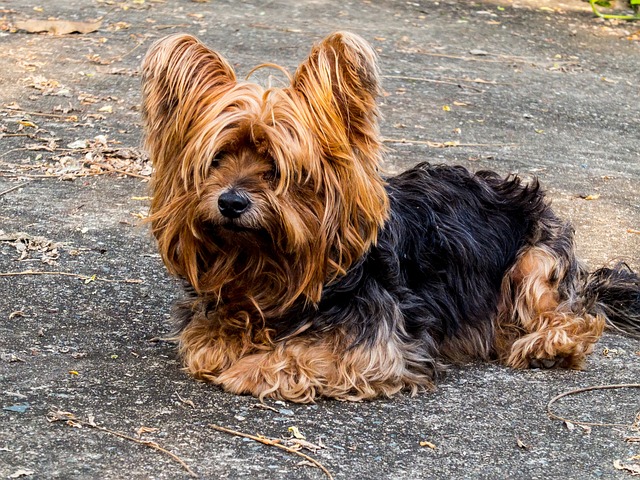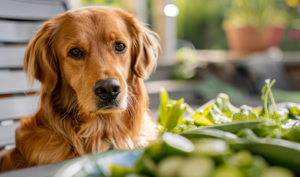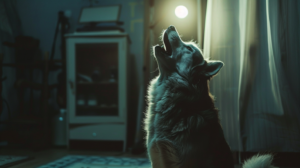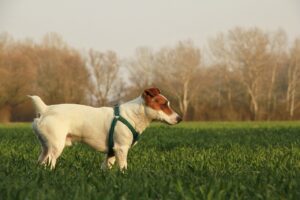
With their petite frames and vivacious personalities, Yorkies have found a special place in the hearts of many locals. These small but spirited dogs, known for their silky fur and lively antics, are more than just pets; they’re companions that add warmth and joy to homes.
Taking a Yorkie into your life is akin to discovering an endless source of happiness. Their playful shenanigans can transform even the dullest of days, replacing it with laughter and affection. They’re fiercely loyal, ready for a cuddle or a game, making every day like an adventure. It’s not merely a purchase; it’s an investment in lifelong companionship.
This blog post will unpack the financial aspects of bringing one of these tiny treasures into your home. It will shed light on the initial cost, annual expenditures, elements influencing price, and the pros and cons of owning a Yorkshire Terrier.
How Much Does a Yorkshire Terrier Cost in the Philippines?
A deep dive into various local marketplaces reveals that a Yorkie puppy’s price could start as low as ₱20,000 and soar up to ₱30,000. Intriguingly, the color doesn’t appear to influence the price significantly. Instead, age, gender, and registration status could play a more prominent role.
Several other platforms also feature Yorkies, with prices fluctuating based on the puppy’s age, health status, and whether it comes with vaccination papers.
Apart from the initial investment, taking care of them entails recurring expenses. These costs can fluctuate, but they’re crucial when welcoming this little furball into your home. Now, let’s discuss the variables that influence the price.
Factors Affecting the Price
Regarding the price tag of a Yorkie, it’s not just about the adorable face and the playful demeanor. Several factors come into play, each contributing its unique element to the final cost.
1. Pedigree
The lineage of a Yorkie plays a significant role in determining its price. A pup from show-dog parents or with a long line of purebred ancestors will undoubtedly command a higher price. It’s all about the bloodline, after all.
2. Age
Puppies are usually more expensive than adult Yorkies due to their high demand. After all, who can resist the charm of a tiny, scampering furball? However, older dogs, perhaps even champions of dog shows past, can also fetch a hefty price.
3. Gender
In the canine world, gender can influence price. Female Yorkies often cost more than their male counterparts, primarily because they can produce offspring, adding an extra layer of value.
4. Coat Color
While traditional blue and gold Yorkies are the most common, rare colors like chocolate or parti-colored can increase prices. These unique hues offer a different aesthetic, appealing to those looking for something unusual.
5. Breeder Reputation
A breeder’s reputation is a critical factor in the price equation. Reputable breeders invest significantly in providing proper care, including health tests and vaccinations, which can add to the cost. However, this ensures you’re bringing home a healthy, well-cared-for pup.
6. Location
Geography also affects the price of a Yorkie. Prices can skyrocket in areas with high demand or where few breeders exist. Conversely, you might get a better deal in places where this breed is plentiful.
In essence, the cost of a Yorkie is a complex interplay of these factors. So, when budgeting for your future furry friend, consider these elements. After all, understanding the “why” behind the price tag can help you make an informed decision when selecting your perfect pup.

The Yearly Expenses
It is a bundle of joy embracing the companionship of a Yorkshire Terrier. However, it’s important to remember that this joy carries a financial commitment. Let’s delve into the yearly expenses.
a. Food Costs
Yorkies may be tiny, but their appetite isn’t. They typically consume around 200 grams of quality dog food daily, roughly 6 kilos per month. With premium dog food prices averaging at ₱150 per kilo, the monthly food budget comes to about ₱900, or ₱11,000 annually.
b. Healthcare Costs
Their puppyhood, brimming with playful leaps and bounds, must be safeguarded with vaccinations against menacing threats like Distemper, Hepatitis, Parvovirus, Parainfluenza, and Rabies. Each protective shield in the form of a vaccine carries a price tag. Moreover, semi-annual visits to the vet are non-negotiable. Combine these healthcare investments, and the annual ledger for your Yorkie’s well-being sums up to a neat ₱10,000.
c. Grooming Expenses
The Yorkie’s silky coat requires regular grooming. A grooming session can cost around ₱500; with a monthly grooming schedule, you’ll look at ₱6,000 per year.
d. Miscellaneous Costs
Setting aside a budget for toys, bedding, leashes, and occasional treats is also advisable. These miscellaneous costs can add up to about ₱10,000 per year.
Yearly Expenses
When you total these expenses, the yearly cost of owning a Yorkie in the Philippines comes to around ₱37,000. This estimate does not include any emergency healthcare costs.
Remember, these figures serve as a guide. Actual costs vary based on your pet’s dietary needs, health status, and veterinary fees.
The First Year Expenses
| Expense | Cost |
| Yorkshire Terrier’s Price | ₱20,000 to ₱30,000 |
| Food | ₱11,000 |
| Healthcare | ₱10,000 |
| Grooming | ₱6,000 |
| Miscellaneous Costs | ₱10,000 |
| TOTAL | ₱57,000 to ₱67,000 |
By considering these yearly expenses, prospective Yorkie owners can ensure they’re fully equipped for the delightful responsibility of pet ownership.
The Right Questions to Ask Your Yorkie Breeder
It is essential to ensure that you’re not only getting an authentic breed but also supporting ethical breeding practices. Here’s a handy guide to help you navigate the process and ask your breeder the right questions.
1. Can I see the puppy’s parents?
This question serves two purposes. Firstly, seeing the parents gives you an idea of how your potential pet might look and behave when it grows up. Secondly, it allows you to assess the conditions in which the pups are bred. Happy, healthy parents usually mean well-cared-for pups.
2. Are the parents registered with the PCCI (Philippine Canine Club Inc.)?
The Philippine Canine Club Inc. (PCCI) is a reputable organization that maintains records of purebred dogs in the Philippines. If the parents are registered with the PCCI, it is a good indication that they are genuine.
3. Have the puppies been vaccinated and dewormed?
Your dog should be vaccinated against diseases such as Distemper, Hepatitis, Parvovirus, Parainfluenza, and Rabies before they leave the breeder. They should also be regularly dewormed. A responsible breeder should have documentation to prove this.
4. What kind of diet are the puppies on?
They can be prone to specific health issues, such as hypoglycemia and dental disease, which can be managed with the proper diet. Understanding what the pups have been eating can help you transition them to your home while maintaining their health.
5. Can you provide references from previous buyers?
References can give you an insight into the breeder’s reputation. If previous buyers had a good experience and their Yorkshire Terriers are healthy and happy, that’s a promising sign.
6. What socialization experiences have the puppies had?
These dogs are known for their confident and outgoing nature. Early socialization is key in nurturing these traits. Puppies should be exposed to various people, sights, sounds, and experiences to grow into well-rounded dogs.
7. Do you offer a health guarantee?
A responsible breeder should stand behind the health of their puppies. A health guarantee indicates the breeder’s confidence in their breeding practices and commitment to the well-being of their dogs.
Now that you’re armed with the right questions, you’re one step closer to bringing your dream Yorkshire Terrier home. Remember, the goal is not just to verify the authenticity of the breed but also to ensure the breeder prioritizes the health and welfare of their dogs. Don’t rush the process; take your time to investigate and feel confident in your decision. Your future furry friend is worth the wait!

The Joys and Challenges of Owning a Yorkie
Owning a pet is a rewarding experience, especially when it’s a lively and intelligent breed. But before you decide to bring home one of these adorable creatures, it’s essential to weigh the pros and cons, especially considering the unique living conditions in our tropical country.
The Upside
1. Perfect for Apartment Living
Yorkies, with their small stature, adapt well to apartment living. They don’t require a lot of space to frolic around, making them an ideal choice for urban dwellers.
2. Excellent Companion Dogs
These dogs make excellent companions. Their bright, inquisitive nature can bring joy and liveliness to any household.
3. Affectionate and Sure of Themselves
They are known for their affectionate nature and self-assured demeanor3. They’re cute and full of character, which can make your life all the more entertaining.
4. Low Maintenance Diet
A well-balanced diet is sufficient for these little canines. You don’t have to worry about special dietary needs, making their care relatively straightforward.
The Downside
1. Not Suited to Extreme Weather
While they adapt well to apartment living, they struggle in extreme weather. In a tropical climate, you’ll need to ensure that they stay cool and hydrated.
2. Can Be Yappy
These dogs can be pretty protective and, at times, yappy. If you prefer a quiet environment, this is something to consider.
3. Regular Grooming Needed
Their luxurious coat requires regular grooming. This means additional time and expense to keep them looking their best.
4. Risk of Health Issues
Lastly, like any other breed, they’re susceptible to specific health issues. Regular vet check-ups and preventative care can help mitigate these risks.
While Yorkies make delightful companions, they come with their challenges. Consider your lifestyle, living environment, and the unique conditions in our tropical region before deciding. After all, owning a pet is a long-term commitment filled with responsibilities.






